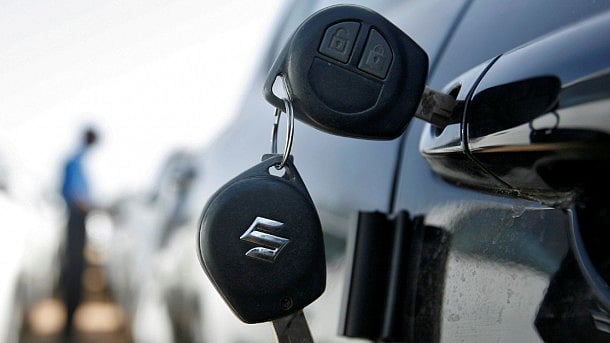
Maruti Suzuki India.
Credit: Reuters Photo
New Delhi: The next many decades belong to India as the global economic powerhouse, and it will be essential to continue demonstrating policy stability, as the country aspires to be the world's manufacturing hub, Maruti Suzuki India MD and CEO Hisashi Takeuchi said on Friday.
Amid a turbulent global geopolitical and economic period, lies an extraordinary opportunity for India to position itself as a trusted, resilient, and sustainable manufacturing hub, he said while speaking at the annual convention of the Automotive Component Manufacturers Association of India (ACMA).
"When we look back at history, every few decades a new nation rises as an economic powerhouse," he said, citing examples of how the US, Europe, Japan and Asian Tigers (Hong Kong, Singapore, South Korea, and Taiwan) have had their moments spanning from the early to the late 20th century.
"The last three decades have belonged to China, as it became the factory of the world. And now, the next many decades belong to India," Takeuchi said.
He cited India's strengths, such as having the world's largest working-age population, a rapidly growing four trillion-dollar economy, proactive government support and the "spirit of resilience and a deep sense of innovation" of Indians that stood in the country's favour.
Drawing parallels with how the then Japanese government supported its industries in the post World War II era to help the country become an economic powerhouse, Takeuchi said, "In India too, I see similarity. The government has reduced corporate tax, launched bold initiatives like PLI and programmes like Make in India."
In addition, he said, "Recent actions like reduction in both direct and indirect taxes, and accelerated interest rate cuts to stimulate domestic demand, will eventually boost the manufacturing sector." All these steps show the government's clear commitment to industry, he noted.
"At the same time, as India aspires to be a global manufacturing hub, it will be important to continue demonstrating policy stability and predictability," Takeuchi said.
Citing global events such as the COVID-19 pandemic, trade tensions and disruption in the global supply chain due to a stuck ship in the Suez Canal, he said, "What we took for granted (supply chain) became critical. And yet, in this very turbulence lies an extraordinary opportunity for India to position itself as a trusted, resilient, and sustainable manufacturing hub."
For some, these disruptions were only setbacks. However, for India, this is an opportunity to rewrite the future, Takeuchi asserted.
Referring to the tariff imposed on Indian goods by the US, he said, "I am aware that almost 30 per cent of auto component exports are to the US, about half of it is now facing a duty of 25 per cent, and the other half is facing 50 per cent, and that poses a major challenge to the component industry." The good part is that the government is very sensitive to this issue, and hopefully, some solution will be found, Takeuchi said.
"Some positive statements from both countries have also come out," he noted.
While India's economic progress looks promising, the auto industry looks even more promising, Takeuchi said, adding the country is already the third-largest automobile market in the world.
Auto component exports crossed USD 523 billion in the financial year 2024-25, and could more than double by 2030, he added.
"India is seen as the global manufacturing hub, and the world is noticing," Takeuchi said, citing the example of Suzuki Motor Corporation choosing the country I as the production hub for its first global electric vehicle, the e VITARA, which will be exported to over 100 countries.
Asserting that it is important to diversify and avoid over-dependence on one single market, Takeuchi said, "This is our chance to make the country not just a participant, but a leader in the global automobile supply chain."
He further said, "If we combine strategic intent with India's unique advantages of domestic demand, talent, and policy support, the possibilities for our growth are limitless."
Asserting that India will be the world's trusted partner in the automotive supply chain, Takeuchi said, "We will drive together towards the vision of a Viksit Bharat."